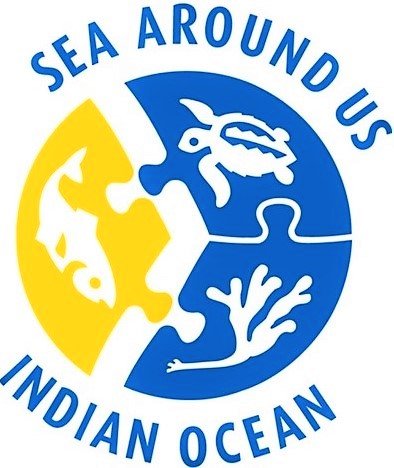Better understanding the habits of sharks can safeguard coral ecosystems
In recent decades, a surge in shark fishing and the growing impacts of climate change have resulted in an overall decline in shark populations, including on many coral reefs. A global study examining shark habitats revealed a disconcerting absence of sharks in 20% of 371 surveyed reefs (https://doi.org/10.1038/s41586-020-2519-y). The Indian Ocean region emerged as not only critically in need of protection but also as a promising area for conservation success.
Numerous studies investigating the consequences of dwindling predator populations have predominantly centred on the disruption of top-down control in coral reef communities and ensuing trophic cascades. However, this focus on predator-prey dynamics provides only a partial understanding of the nature of coral reef ecosystem function. Most studies paid less attention to non-trophic effects, overlooking potentially influential factors like habitat structure, which may influence shark presence and distribution, behaviour and space use.
The significance of habitat structure and complexity should not be underestimated, as it also influences the distribution and availability of prey resources and the shaping of interactions among different species. Hence, to better comprehend the role of sharks in tropical reef ecosystems and anticipate the repercussions of their decline, it becomes imperative to delve into the detailed patterns of habitat use and environmental requirements.
Recognizing this knowledge gap, Nico Fassbender (https://www.seaaroundus-io.org/nico-fassbender) initiated his PhD research titled “Developing an understanding of behavioural patterns in marine top predators - how does coral reef habitat complexity affect the distribution and habitat use of reef sharks?” This research is currently underway at The University of Western Australia, supervised by Jessica Meeuwig, the director of the Marine Futures Lab, and Dirk Zeller, the director of the Sea Around Us – Indian Ocean.
The study is supported by the Save Our Seas Foundation (https://saveourseas.com/), who fund Nico's research in the Seychelles' Amirante Islands Group through a keystone grant. Nico’s field research is based at the D’Arros Research Centre on D’Arros Island, a private island in the Seychelles' Amirante Islands Group designated a nature reserve in 2014 and managed by the Save Our Seas Foundation. It is located adjacent to St Joseph Atoll, thus providing two separate but co-located areas for study. The Save Our Seas Foundation also provides in-kind logistical support for Nico’s four additional research locations in the Seychelles’ Inner Islands.
Through his research, he aims to take a more bottom-up approach to examine the connections and interactions between reef sharks and their habitats and prey. He anticipates that it will provide fresh perspectives on the complex behaviours of sharks and the role of benthic and reef fish communities in the interactions between predators and prey.
Nico employs a multi-technique approach to delve into the behaviours, habitat use and prey selection of reef sharks, offering insights that can help influence regional management and conservation strategies. Nico is employing ultrasonic telemetry for tracking shark movements and behaviour; 3D photogrammetry sampling to map habitat structure associated with the tracking receiver arrays; stereo-Baited Remote Underwater Video Systems (BRUVS) to derive data on the diversity, abundance and biomass of reef sharks in his study area; and faecal DNA approaches to derive information on recently consumed prey.
More on Nico’s project and the additional tools and methods he uses will follow in later posts, so stay tuned.
If you wish to read more about Nico’s work, see https://saveourseas.com/project/the-right-reefs-for-sharks/
Posted by Shannon Barrie

